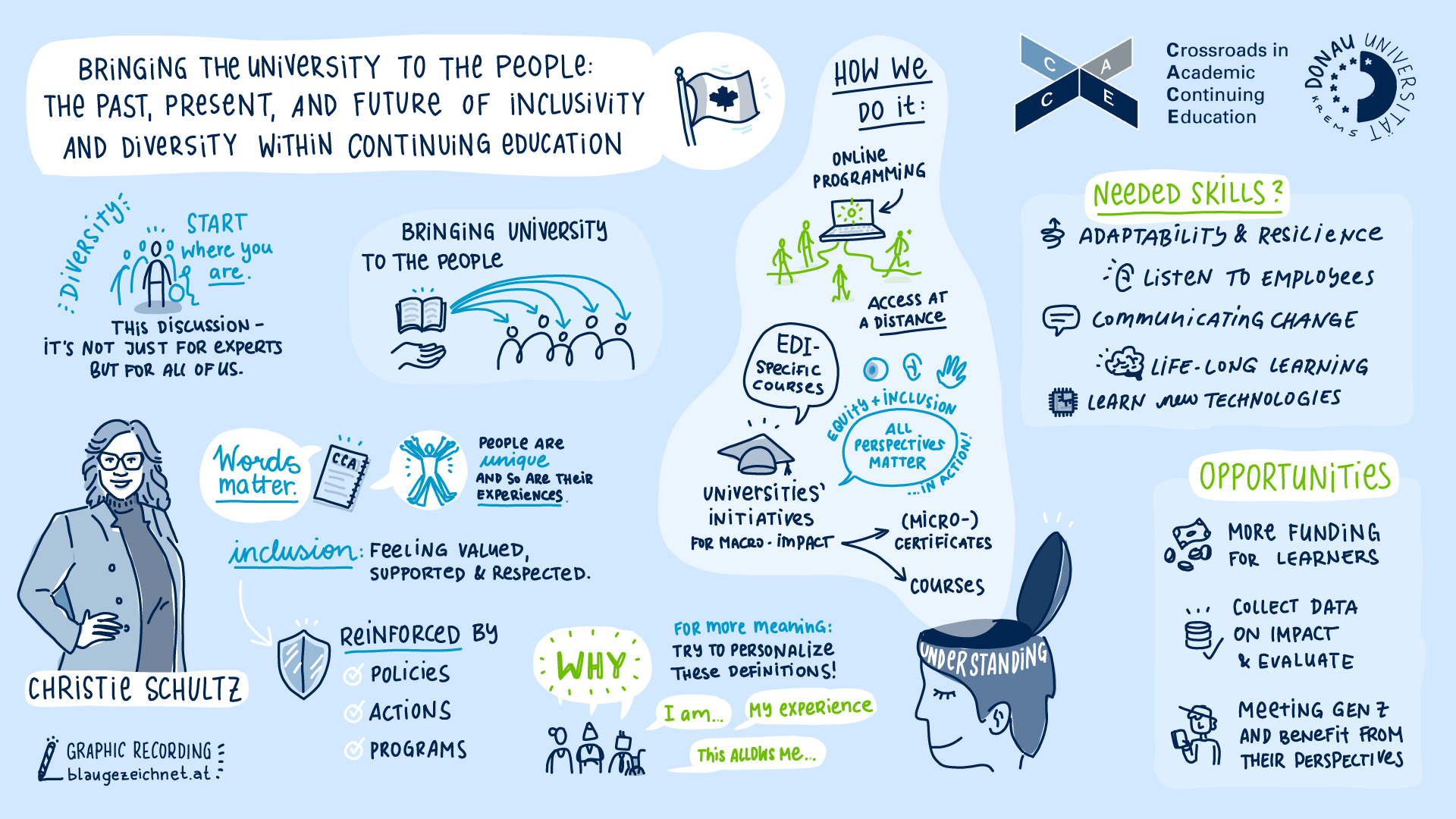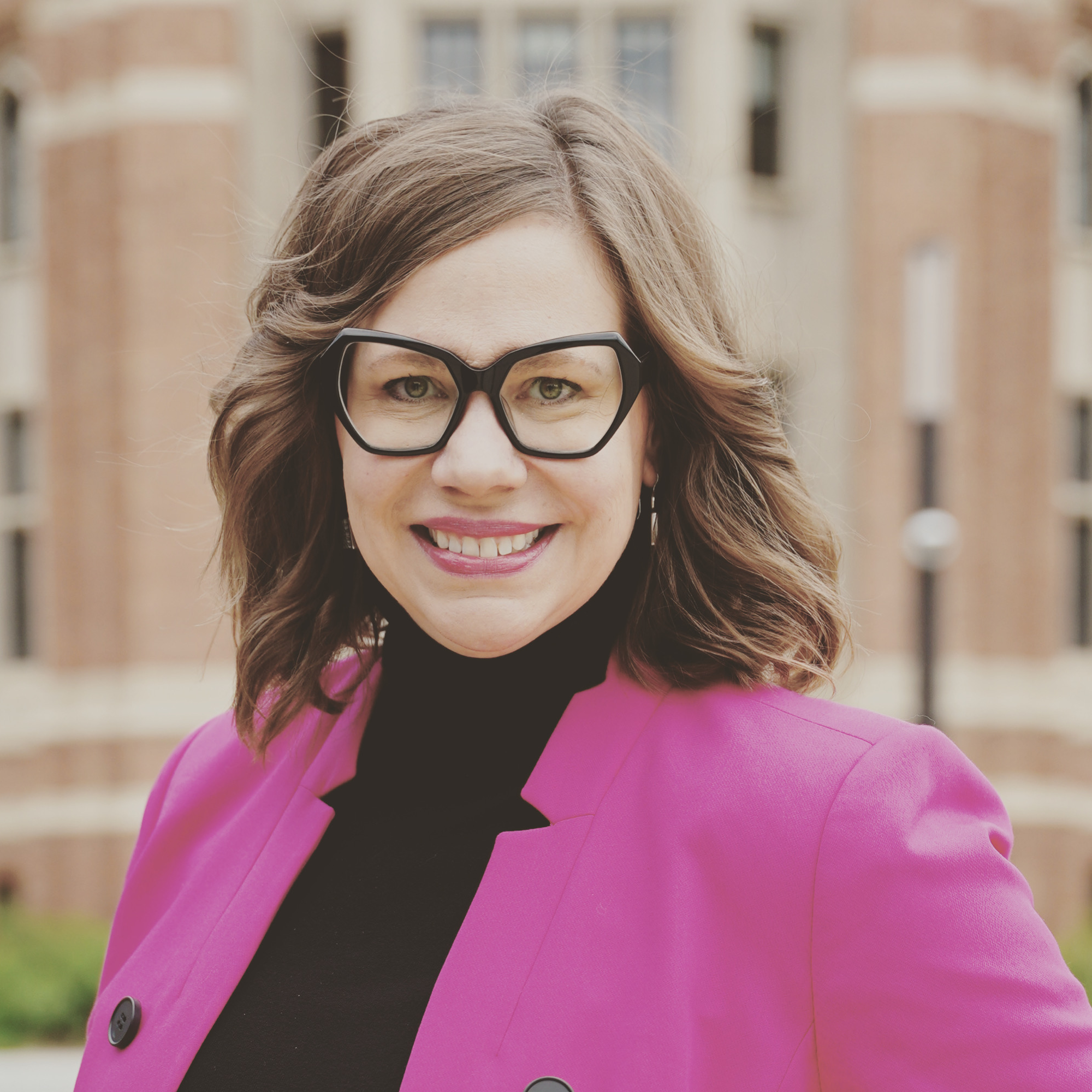
Inclusion has long been a central topic in the Canadian continuing education landscape, explains Christie Schultz. She is the Dean of the Center for Continuing Education at the University of Regina. At CACE, Schultz spoke about the past, present and future of inclusion and diversity in continuing education.
In her presentation, she showed how far back the history of inclusion in continuing education at Canadian universities goes. The first universities established “extension units” as early as the beginning of the 20th century. “The idea behind this was to bring the university to the people,” explains Schultz. The claim: knowledge should not be reserved for an academic elite but should benefit the entire population - a principle that still holds true today. Low-threshold access to education is key, for example through an extensive range of online courses offered by public universities or short programs for professional development.
Microcredentials can also play an important role in diversity and inclusion initiatives. These certify short learning experiences or training courses. Schultz explains how they are successfully used at various universities in Canada. For example, the University of British Columbia offers a microcredential in “Diversity and Inclusion”.
This part-time program is aimed at people who want to create inclusive work environments and teaches them how to promote inclusive practices. Similar programs are offered at other institutions in Canada including York University and at the University of Regina, where Schultz works.
Some universities have also developed continuing education programs specifically designed to support the inclusion of Indigenous people and knowledge. These initiatives offer a whole range of short programs that deal with topics such as health, justice, education, language and culture. At the University of Calgary, for instance, there is a certificate course for managers that focuses on Indigenous knowledge and ways of knowing. It aims to support the integration of Indigenous perspectives in companies and organizations while promoting the full inclusion of Indigenous people in the workplace and beyond.
Schultz also addresses the question of whether continuing education at universities can actually contribute to promoting inclusion and diversity. Her answer is a clear yes - although there is still untapped potential. She cites the financing of academic continuing education as a challenge. It is essential that people continue their education and reorient themselves over the course of their lives, but some have problems financing their studies themselves. Schultz therefore advocates targeted funding systems to facilitate access for learners at all stages of career and life.
In order to analyze the influence of continuing education programs on students' careers, better data collection is also needed. Organizations that collect educational statistics should systematically record continuing education activities, Schultz believes. If such data is made available, even better decisions can be made about the future of learning.
It is also crucial to adapt to the expectations and needs of Generation Z, which is now entering the labor market and is already beginning to take up further education. “We notice that this generation places great value on social justice and inclusion.”
Finally, Schultz appeals to leaders in continuing education to regularly reflect on how inclusion can be achieved in even better ways. “Our programs need to be accessible, diverse and inclusive, and people need to be able to afford them,” she says. “We need to keep reminding ourselves that our work can make a real difference in the lives of our learners.”
About Christie Schultz

Dr. Christie Schultz is known as an interdisciplinary leader in higher education in Canada with expertise in the fields of professional, continuing, and online education. As a leader, she prioritizes collaboration, partnerships, and creating exceptional student experiences. Currently, Dr. Schultz serves as the Dean of the Centre for Continuing Education (CCE) and is an Associate Professor in the Faculty of Education at the University of Regina. Actively involved in the Canadian Association for University Continuing Education (CAUCE), she serves on the national executive committee and served as the association's president in 2022-23. Dr. Schultz is also a member of the advisory board for the European University for Academic Continuing Education (EU.ACE).